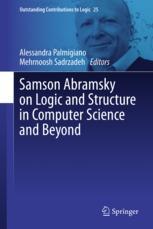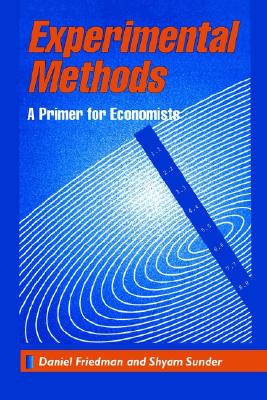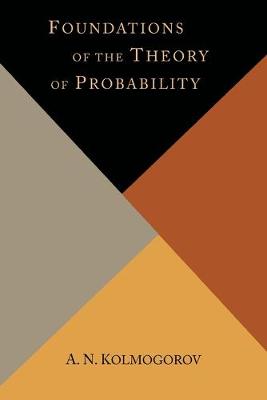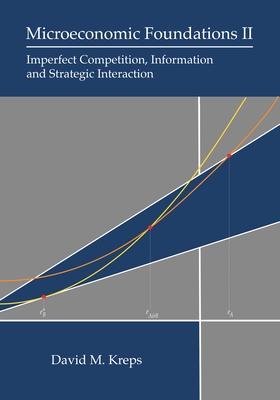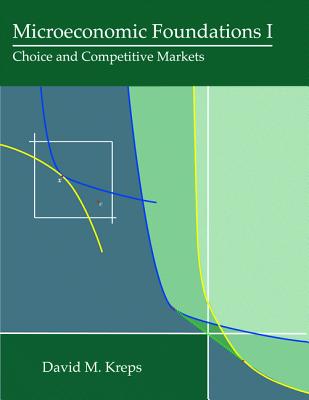图书简介
Samson Abramsky’s wide-ranging contributions to logical and structural aspects of Computer Science have had a major influence on the field. This book is a rich collection of papers, inspired by and extending Abramsky’s work. It contains both survey material and new results, organised around six major themes: domains and duality, game semantics, contextuality and quantum computation, comonads and descriptive complexity, categorical and logical semantics, and probabilistic computation. These relate to different stages and aspects of Abramsky’s work, reflecting its exceptionally broad scope and his ability to illuminate and unify diverse topics.Chapters in the volume include a review of his entire body of work, spanning from philosophical aspects to logic, programming language theory, quantum theory, economics and psychology, and relating it to a theory of unification of sciences using dual adjunctions. The section on game semantics shows how Abramsky’s work has led to a powerful new paradigm for the semantics of computation. The work on contextuality and categorical quantum mechanics has been highly influential, and provides the foundation for increasingly widely used methods in quantum computing. The work on comonads and descriptive complexity is building bridges between currently disjoint research areas in computer science, relating Structure to Power.The volume also includes a scientific autobiography, and an overview of the contributions. The outstanding set of contributors to this volume, including both senior and early career academics, serve as testament to Samson Abramsky’s enduring influence. It will provide an invaluable and unique resource for both students and established researchers.
Part 1. Duality and domains in logical form.- Chapter 1. Duality, intensionality, and contextuality: Philosophy of category theory and the categorical unity of science in Samson Abramsky (Yoshihiro Maruyama).- Chapter 2. Minimisation in logical form (Nick Bezhanishvili, Marcello Bonsangue, Helle Hvid Hansen, Dexter Kozen, Clemens Kupke, Prakash Panangaden, and Alexandra Silva).- Chapter 3. A Cook’s tour of duality in logic: From quantifiers, through Vietoris, to measures (Mai Gehrke, Tomas Jakl, and Luca Reggio).- Chapter 4. Stone duality for relations (Alexander Kurz, Andrew Moshier, and Achim Jung).- Part 2. Game semantics.- Chapter 5. The mays and musts of concurrent strategies (Simon Castellan, Pierre Clairambault, and Glynn Winskel).- Chapter 6. A tale of additives and concurrency in game semantics (Pierre Clairambault).- Chapter 7. The far side of the cube: An elementary introduction to game semantics (Dan Ghica).- Chapter 8. An axiomatic account of a fully abstract game semantics for general references (Jim Laird and Guy McCusker).- Chapter 9. Deconstructing general references via game semantics (Andrzej S. Murawski and Nikos Tzevelekos).- Chapter 10. The game semantics of game theory (Jules Hedges).- Part 3. Contextuality and quantum computation.- Chapter 11. Consistency, acyclicity, and positive semirings (Albert Atserias and Phokion G. Kolaitis).- Chapter 12. Closing bell, boxing black box simulations in the resource theory of contextuality (Rui Soares Barbosa, Martti Karvonen, and Shane Mansfield).- Chapter 13. Describing and animating quantum protocols (Richard Bornat and Rajagopal Nagarajan).- Chapter 14. The Contextuality-by-default view of the Sheaf-Theoretic approach to contextuality (Ehtibar Dzhafarov).- Chapter 15. Godel, Escher, Bell, contextual semantics for logical paradoxes (Kohei Kishida).- Chapter 16. Putting paradoxes to work: Contextuality in measurement-based quantum computation (Robert Raussendorf).- Part 4. Game comonads and descriptive complexity.- Chapter 17. Monadic Monadic second order logic (Mikolaj Bojanczyk, Bartek Klin, and Julian Salamanca).- Chapter 18. Constraint satisfaction, graph isomorphism, and the pebbling comonad (Anuj Dawar).- Chapter 19. The strategic balance of games in logic (Jouko Vaananen).- Part 5. Categorical and logical semantics.- Chapter 20. Compositionality in context (Alexandru Baltag, Johan van Benthem, and Dag Westerstahl).- Chapter 21. Compact inverse categories (Robin Cockett and Chris Heunen).- Chapter 22.- Reductive logic, proof-search, and Coalgebra: A perspective from resource semantics (Alexander Gheorghiu, Simon Docherty, and David Pym).- Chapter 23. Lambek-Grishin calculus: Focusing, display and full polarization (Giuseppe Greco, Michael Moortgat, Valentin D. Richard, and Apostolos Tzimoulis).- Chapter 24. On strictifying extensional reflexivity in compact closed categories (Peter Hines).- Chapter 25.- Semantics for a Lambda calculus for string diagrams (Bert Lindenhovius, Michael Mislove, and Vladimir Zamdzhiev).- Chapter 26. Retracing some paths in categorical semantics: From process-propositions-as-types to categorified reals and computers (Dusko Pavlovic).- Part 6. Probabilistic computation. Chapter 27. (Towards a) Statistical probabilistic Lazy Lambda calculus (Radha Jagadeesan).- Chapter 28. Multisets and distributions, in drawing and learning (Bart Jacobs).- Chapter 29. Structure in machine learning (Prakash Panangaden).
Trade Policy 买家须知
- 关于产品:
- ● 正版保障:本网站隶属于中国国际图书贸易集团公司,确保所有图书都是100%正版。
- ● 环保纸张:进口图书大多使用的都是环保轻型张,颜色偏黄,重量比较轻。
- ● 毛边版:即书翻页的地方,故意做成了参差不齐的样子,一般为精装版,更具收藏价值。
关于退换货:- 由于预订产品的特殊性,采购订单正式发订后,买方不得无故取消全部或部分产品的订购。
- 由于进口图书的特殊性,发生以下情况的,请直接拒收货物,由快递返回:
- ● 外包装破损/发错货/少发货/图书外观破损/图书配件不全(例如:光盘等)
并请在工作日通过电话400-008-1110联系我们。
- 签收后,如发生以下情况,请在签收后的5个工作日内联系客服办理退换货:
- ● 缺页/错页/错印/脱线
关于发货时间:- 一般情况下:
- ●【现货】 下单后48小时内由北京(库房)发出快递。
- ●【预订】【预售】下单后国外发货,到货时间预计5-8周左右,店铺默认中通快递,如需顺丰快递邮费到付。
- ● 需要开具发票的客户,发货时间可能在上述基础上再延后1-2个工作日(紧急发票需求,请联系010-68433105/3213);
- ● 如遇其他特殊原因,对发货时间有影响的,我们会第一时间在网站公告,敬请留意。
关于到货时间:- 由于进口图书入境入库后,都是委托第三方快递发货,所以我们只能保证在规定时间内发出,但无法为您保证确切的到货时间。
- ● 主要城市一般2-4天
- ● 偏远地区一般4-7天
关于接听咨询电话的时间:- 010-68433105/3213正常接听咨询电话的时间为:周一至周五上午8:30~下午5:00,周六、日及法定节假日休息,将无法接听来电,敬请谅解。
- 其它时间您也可以通过邮件联系我们:customer@readgo.cn,工作日会优先处理。
关于快递:- ● 已付款订单:主要由中通、宅急送负责派送,订单进度查询请拨打010-68433105/3213。
本书暂无推荐
本书暂无推荐
